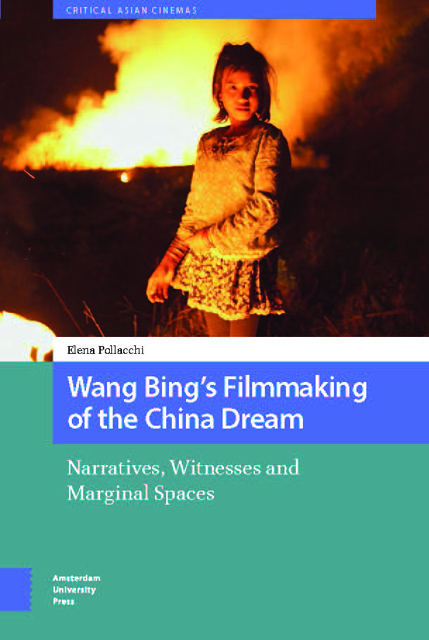Book contents
- Frontmatter
- Dedication
- Table of Contents
- Acknowledgements
- Editorial Note
- Foreword
- Introduction
- 1 Wang Bing’s Cinematic Journey: A Counter-Narrative of the China Dream
- 2 History in the Making: The Debut Epic Tiexi qu: West of the Tracks
- 3 Spaces of Labour: Three Sisters, ’Til Madness Do Us Part, Bitter Money
- 4 Spaces of History and Memory: The Works on the Anti-Rightist Campaign
- 5 Collective Spaces – Individual Narratives
- 6 Concluding Remarks: Spaces of Exhibition and Spaces of Human Practice
- Filmography
- Bibliography
- Index
4 - Spaces of History and Memory: The Works on the Anti-Rightist Campaign
Published online by Cambridge University Press: 12 January 2023
- Frontmatter
- Dedication
- Table of Contents
- Acknowledgements
- Editorial Note
- Foreword
- Introduction
- 1 Wang Bing’s Cinematic Journey: A Counter-Narrative of the China Dream
- 2 History in the Making: The Debut Epic Tiexi qu: West of the Tracks
- 3 Spaces of Labour: Three Sisters, ’Til Madness Do Us Part, Bitter Money
- 4 Spaces of History and Memory: The Works on the Anti-Rightist Campaign
- 5 Collective Spaces – Individual Narratives
- 6 Concluding Remarks: Spaces of Exhibition and Spaces of Human Practice
- Filmography
- Bibliography
- Index
Summary
Abstract
This chapter approaches history as a central concern in Wang Bing’s filmmaking. It deals with spaces of history and memory, in particular in relation to the Anti-Rightist Campaign of 1957–59. It highlights Wang’s interest in unveiling the gaps and the contradictions imbued in state narratives at different epochs. A close reading of Wang’s only full-length feature film so far The Ditch (2010) and a comparative reading of it with Pier Paolo Pasolini’s Salò (1975) are given in the first section of the chapter. The second section focuses on Wang’s mature work Dead Souls (2018) as a visual archive of witnesses on the campaign and as a way to testify to historical injustice, also recalling Claude Lanzmann’s Shoah (1985).
Keywords: Documentary cinema, China, Memory, Witnessing, Oral history, Anti-Rightist Campaign, Wang Bing, Claude Lanzmann
The substance of cinema is therefore an endless long take, as is reality to our senses for as long as we are able to see and feel (a long take that ends with the end of our lives); and this long take is nothing but the reproduction of the language of reality. In other words, it is the reproduction of the present.
‒ Pasolini (1967)The critical praise received with West of the Tracks allowed Wang Bing to travel the world and expand his production network. Festival screenings of his debut film offered him a good opportunity to meet producers from different countries. France, in particular, paid great attention to him as an emerging talent (Bégaudeau 2004; Niogret 2004). He was invited to the Paris-based Cannes Cinéfondation, a one-year funded workshop for upcoming filmmakers to develop new projects. In addition to his focus on labour, during his time at the Cinéfondation Wang Bing confirmed his interest in history and started working on a feature film project on Chinese ‘reform through labour’ (laogai, or laodong gaizao) set during the Anti-Rightist campaign of 1957–1959. This political campaign, which primarily targeted intellectuals, was launched by Mao Zedong in reaction to the so-called Hundred Flowers movement of 1955–1956, which encouraged intellectuals to express critical views on the Chinese Communist Party.
- Type
- Chapter
- Information
- Wang Bing's Filmmaking of the China DreamNarratives, Witnesses and Marginal Spaces, pp. 127 - 170Publisher: Amsterdam University PressPrint publication year: 2021

